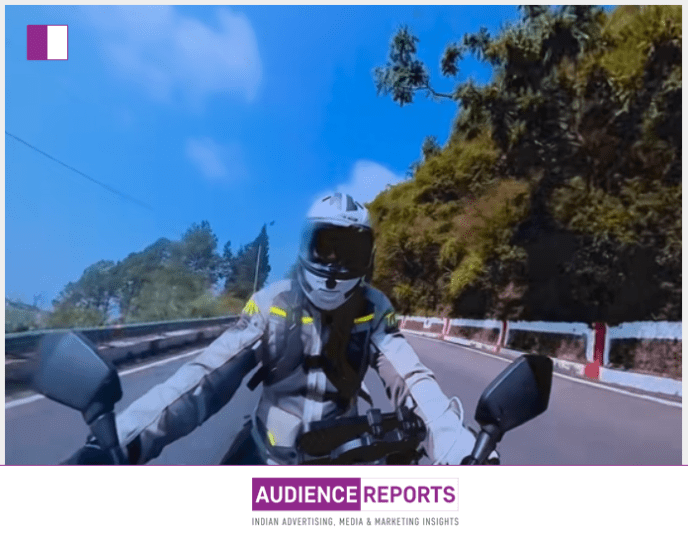Samriddh D is not just a business leader; he is a rider in the truest sense of the word. As the Chief Business Officer at Arata, his professional journey is marked by clarity and intention. But beyond the boardrooms and business strategies, it is on two wheels that Samriddh D continually shapes his philosophy of life. His recent reflections on motorcycling reveal deeper insights about discipline, community, and self-mastery insights that are as applicable to business and leadership as they are to the open roads of India.
Samriddh D rides. He rides to work every day. He rides long distances across the country and off-road terrains that test both machine and man. In his own words, he considers himself a “fairly composed rider,” someone who approaches every journey not merely as transportation, but as a deliberate act of learning. Every trip adds a new layer of skill, a honed intuition, a refined understanding of both the machine and himself. Samriddh D rides purposefully a word that resonates strongly in today’s world of speed and surface-level appearances.
In his LinkedIn post, Samriddh D laments a worrying shift in the motorcycling community. He observes a growing trend of riders whose motivations appear rooted more in spectacle than in substance. Loud exhausts, aggressive revving, reckless speeds behaviors that not only disregard public safety but also erode the maturity of a culture that should be about balance and respect. For Samriddh D, motorcycling is far more than the decibel levels of one’s exhaust or the size of one’s machine. It is a craft, an art form, and above all, a mindset.
Motorcycling, as Samriddh D points out, is not about material achievement. The size of the bike, whether a 1000cc superbike or a humble scooter, does not define the rider’s character or capability. Scooters, as he rightly says, often go where nothing else can. The essence of riding lies in the harmony between man and machine, in the literal balance it demands from all the senses. It is this art of control, awareness, and flow that Samriddh D seeks to preserve.
The frustration he voices about the current state of biking communities is not a critique born of elitism. Rather, it is a call for introspection. Samriddh D reminds us that communities are built not just by gathering people with similar interests, but by nurturing shared values. When biking groups devolve into noisy, unruly gatherings driven by vanity rather than passion, they dilute what makes motorcycling meaningful. Samriddh D’s discomfort in engaging with such groups stems from a desire to uphold the dignity of the craft.
Yet, his message is not one of exclusion. Samriddh D extends an invitation to all riders seasoned and new alike to recalibrate their approach. Slow down. Take time. Enjoy the ride for what it is, not for how it looks on social media. Go fast when it’s safe and makes sense, but ride smooth always. It’s a simple, timeless philosophy that echoes far beyond motorcycling. Whether in business, in personal pursuits, or in relationships, it is this balance of patience, skill, and awareness that leads to sustainable growth and deep satisfaction.
What stands out about Samriddh D’s perspective is that it bridges the gap between a hobby and a life practice. His deliberate approach to riding mirrors how he likely approaches his leadership role at Arata. In business, as in biking, there are those who chase short-term flashiness rapid growth, noisy announcements, and aggressive competition without building the foundational skills and discipline that sustain long-term success. Samriddh D’s call for smoother, more thoughtful riding can easily be read as a metaphor for how we should approach work and leadership: with precision, respect, and constant learning.
There is also a humility in Samriddh D’s words. Despite years of experience and honed skills, he openly acknowledges that with every ride, he is still learning. This mindset of perpetual improvement and openness to growth is a hallmark of genuine expertise. It stands in contrast to the bravado that some younger riders exhibit, mistaking speed and noise for mastery. Samriddh D shows that true mastery is quiet, composed, and deeply self-aware.
By sharing his thoughts publicly, Samriddh D also highlights the importance of responsible representation. Communities, whether of bikers or business professionals, are defined by how their members behave and present themselves. Samriddh D’s gentle yet firm appeal to riders to act with decorum is a reminder that we all carry the weight of our affiliations. Our actions reflect on the larger group. As he urges fellow riders to “say H!!” and meet for a slow ride in Delhi/NCR, he is advocating for meaningful connection over performative noise.
In the end, Samriddh D offers more than a commentary on motorcycling. He offers a blueprint for intentional living. Whether one is on two wheels, leading a team, or simply navigating the complexities of modern life, the principles he champions purposefulness, continuous learning, respect for community, and balanced execution are universally relevant.
Samriddh D’s voice is one of calm conviction. He does not chase trends nor does he dismiss new generations outright. Instead, he patiently invites all of us riders or otherwise to pause, reflect, and engage with our passions and communities in ways that are enriching and enduring. In doing so, Samriddh D embodies what it means to be both a rider and a leader.




































